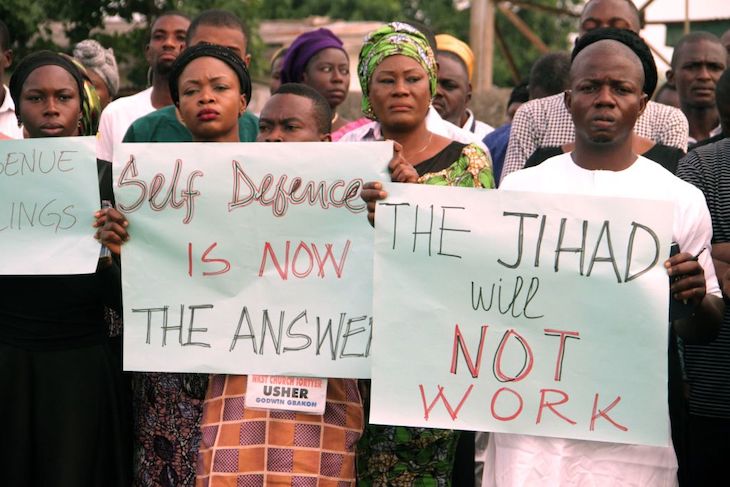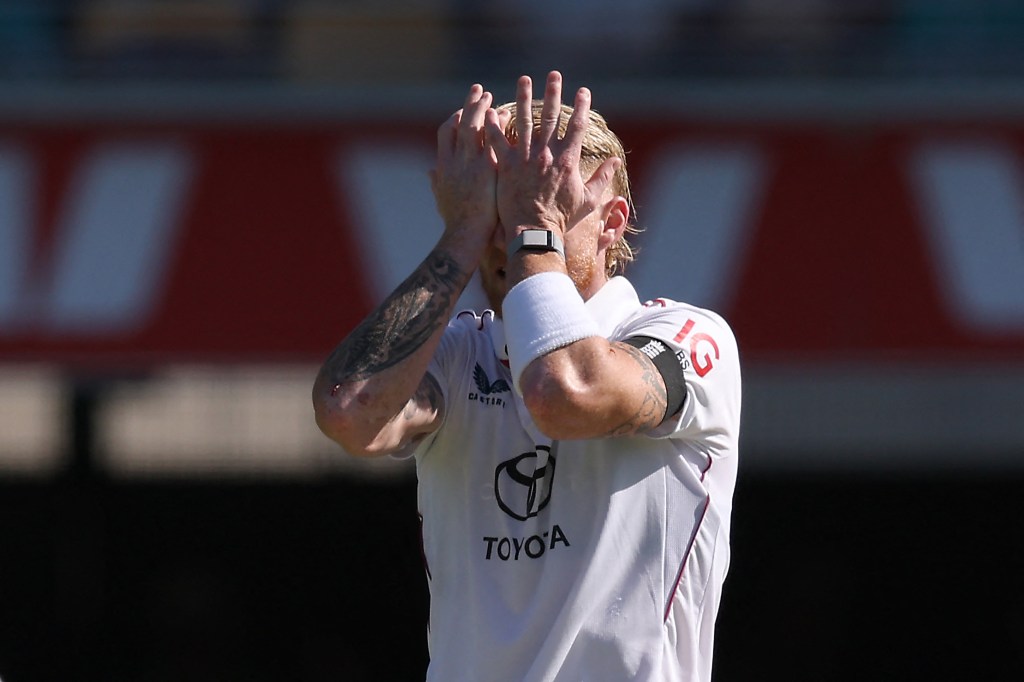The persecution of Nigeria’s Christians is medieval in its horror. Villages are surrounded in the dead of night by bandits who rape and kill the inhabitants. No one is spared: women and children are among those butchered.
The Makurdi Diocese, in Nigeria’s Middle Belt Benue state, has been hit badly by this savage violence. In 2024, 549 locals in this diocese alone were murdered and dozens more kidnapped. Over 3,700 people in Makurdi have been killed since 2015. Villages have been effectively wiped off the map. Over a million Nigerians, terrified of what might await them, have chosen instead to live in Internally Displaced Person (IDP) camps.
Wilfred Anagbe, the Catholic Bishop of Makurdi, says the massacres are a systematic attempt to Islamise the region
Wilfred Anagbe, the Catholic Bishop of the diocese of Makurdi, home to about a million people, says the massacres are a systematic attempt to kill Christians and Islamise the region – and that the authorities are turning a blind eye to the killing of Christians:
‘The quest to Islamise the land is high on the agenda of some of the most powerful and influential Muslims in Nigeria. There is a campaign to take land to spread Islam. Militant Fulani herdsmen are destroying society. They steal and vandalise. They kill and boast about it. They kidnap and rape – and they enjoy total impunity from the elected authorities.’
The militiamen responsible for these attacks often target non-Muslims in isolated communities who are far from help. Anagbe says that these jihadists are, as with Isis, motivated by the spoils of war, and use their religion as an excuse. The rewards are certainly rich: Benue is Nigeria’s bread basket. The farms are fertile and well-tended. For years, Christian farmers have looked after these lands. But many now face an impossible choice: stay put and risk their lives, or flee – abandoning their farmland to the herdsmen.
‘When they attack, they destroy churches and burn houses and schools,’ Anagbe tells The Spectator. Several of the priests he is responsible for have been gunned down – so, too, have dozens of worshippers at churches in his diocese.
At Christmas, several villages in Benue State were warned of an imminent attack. They pleaded for help but none came in time. Eleven Christians were killed by Fulani militants. Anagbe says such incidents during Christian holidays are ‘almost customary’.
Unsurprisingly, Benue’s Christians are apprehensive of what Easter might bring. During Holy Week in 2018, two of Anagbe’s priests were murdered, along with 17 worshippers.
Father Remigius Ihyula, a project partner of Aid to the Church in Need (ACN) and head of the Foundation for Justice, Development and Peace in Makurdi Diocese, echoes Anagbe’s view that the attacks are targeted:
‘The Fulani herdsmen come with AK47s and other sophisticated weapons. Their attacks are well coordinated. This suggests that they are hired mercenaries who have undergone military training. They cordon a whole village, and (then attack). Those that they don’t hack down with machetes are hit with bullets as they flee.’
The killings, in which children and pregnant women are killed, mirror attacks carried out by Isis, says Ihyula.
This horrific violence is not isolated to Benue state. Across Nigeria, similar massacres have been taking place for years. Kidnappings are another problem. The snatching of 276 mostly Christian female students in Chibok in Nigeria’s Borno State in 2014 sparked protests around the world, with celebrities demanding that Boko Haram #BringBackOurGirls. Over a decade on, some of those students have never returned home.
Today, Nigerian Christians continue to fear for their lives and freedom. As a result, many are now forced to live in squalid camps: once self-sufficient, proud people of the land have to beg for survival and live off handouts.
Perhaps remarkably, given the terrible situation Nigeria’s displaced Christians find themselves in, Anagbe says that their faith is thriving:
‘Our people never abandon their faith. This is one of the mysteries of the Christian faith – and it’s not just in Nigeria. In the early church, Christians willingly gave themselves up for martyrdom.’
Anagbe says the world has turned a blind eye to the situation in Nigeria for too long. He wants Nigeria to be designated as a ‘Country of Particular Concern’. He has travelled to the United States and Westminster to make his case. In doing so, he hopes he can push the authorities in Nigeria to finally take seriously the persecution of Christians in the country:
‘The experience of the Nigerian Christians today can be summed up as that of a Church under sustained Islamic emasculation and persecution,’ he told a reception in parliament last month. ‘We must mobilise to ensure that we roll back this dark cloud of rabid religious intolerance and accompanying violence by radical Islam in Nigeria.’
This Easter, Nigeria’s Christians will celebrate fearfully, knowing that they remain a target.








Comments